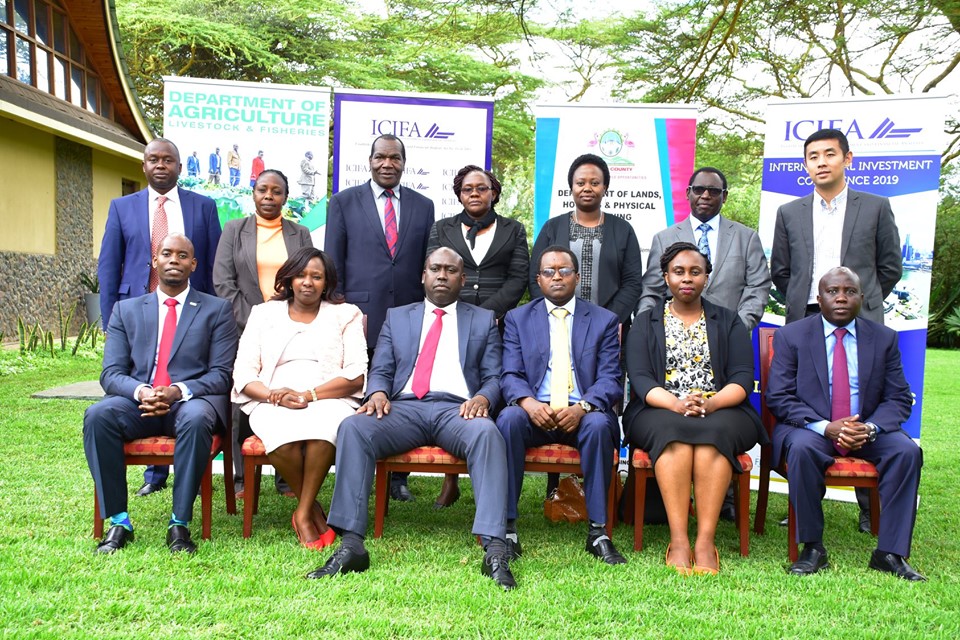+254 726 498698 | +254 748 174914 | +254 786 994091
info@icifa.co.ke
| contact us
ICIFA International Investment Conference Key Note Speech by Mr. Charles M. Hinga, PS, State Department for Housing and Urban Development
31 October 2019
It gives me great pleasure to join you in the discourse on this important topic “Investment in Smarter Cities in Africa”. This Conference is being held at a time when Kenya is implementing major reforms related to the Constitution of Kenya 2010, the Big 4 Agenda, international and other multi – lateral and bi-lateral agreements/conventions.
To consolidate the efforts geared towards the realization of Constitutional obligations after the 2017 National General Election, the Jubilee Government under the leadership of H.E. President Uhuru Muigai Kenyatta rolled – out major initiatives popularly known as the Big 4 Agenda focusing on affordable housing, universal health coverage, manufacturing and food security and nutrition. The Big 4 Agenda speaks to Bills of Rights as articulated in the Constitution as well as international agenda, i.e. sustainable development goals.
The Country has a robust yet ambitious Bills of Rights placing huge responsibility on the Country (National & County Governments). Article 42 of the Constitution states that every person has the right to a clean and healthy environment. Article 43 (1) states that every person has the right— a) to the highest attainable standard of health, which includes the right to health care services, including reproductive health care; b) to accessible and adequate housing, and to reasonable standards of sanitation; c) to be free from hunger, and to have adequate food of acceptable quality; d) to clean and safe water in adequate quantities; e) to social security; and f) to education.
Smart city concept has been variously defined, but the main thrust of it are smart: governance; economy; mobility; environment; living and people. Furthermore, smart cities are driven by ICT to create a conducive and functioning city. Some of the key parameters include, efficiency in energy, water, waste management, transport and communication and service delivery as whole. In compliance with Article 184 of the Constitution on Urban Governance and Management the country has prepared National Urban Development Policy for Kenya (Sessional Paper No 6 of 2016), Urban Areas & Cities Act of 2011, Physical & Land Use Planning Act of 2019, and Development Framework Guidelines on Affordable Housing of 2019, among others. The Country is committed towards the realization of sustainable development as stated in our Constitution as well as by the United Nations (i.e. Goal 1 on no poverty, Goal 2 on zero hunger, Goal 8 on decent work and economic growth, Goal 9 on industry, innovation and infrastructure and Goal 12 on sustainable cities and communities). Kenya is committed to sustainable urban development leading to competitive, secure and livable cities and urban areas.
In the urban space, the Government has initiated major programmes and projects geared towards the realization of sustainable development, including: • Affordable Housing Programme seeking to provide 500,000 housing units by the year 2022; • NaMATA is responding to mobility challenges bedeviling Nairobi Metropolitan Region; • NAMSIP – addressing infrastructure challenges in the Nairobi Metropolitan Region; • Kenya Urban Support Programme to improve urban governance and management as well as infrastructure & services in the cities and municipalities in Kenya; and • Kenya Informal Settlement Improvement Programme seeking to improve living conditions in the areas where over 50 percent of the urban population lives.
The Government initiative aims at creating a conducive environment for the private sector to play a central role in the development process. The ongoing transformative processes undertaken by the Government are open to new innovations including smart cities concept. Smart cities has huge benefits, which will spur the speedy implementation of the Big 4 Agenda. As we implement AHP, we are open to new ideas that can influence the development process, including technological innovation in the delivery of functional cities and livable urban settlements. Investment and financial analysts have an important role to play in ensuring optimal investment decision are made, particularly in the face of the increasingly scarce resources and accountability concerns.
It is my expectation that the results of this Conference will invigorate debate on the need for Smarter Cities and suggest pragmatic approaches to attract investment in the delivery of Smarter Cities in Africa. Some of the areas of interest include: affordable housing programme, light commuter train service, Bus Rapid Transport, and Transit Oriented Development.


